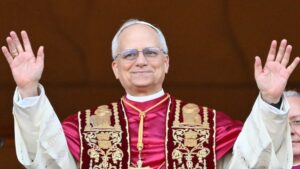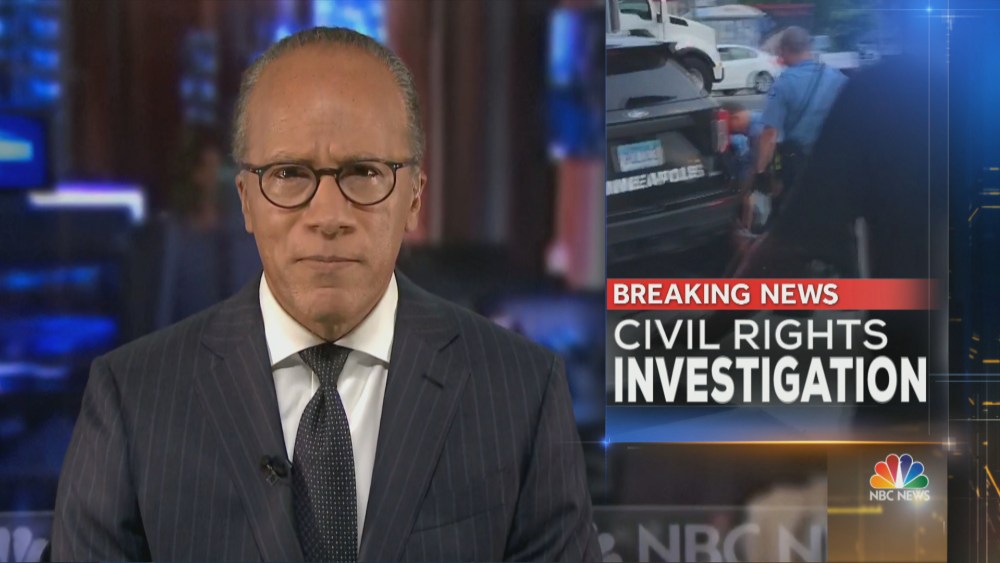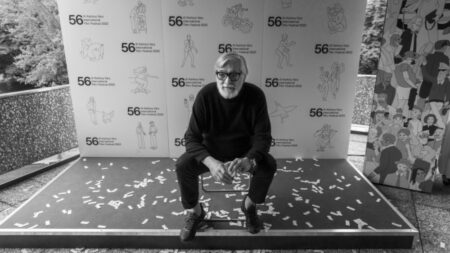Lester Holt’s next job has him working a role he hasn’t held in a very long time: the new guy.
When Holt, who has anchored “NBC Nightly News” for the past decade through coronavirus, the rise of President Trump and a steady increase of horrific shootings across the nation, steps away from the desk on May 30th, he will do it with the knowledge that he still has a few stories to tell. He will start contributing more frequently to “Dateline,” the NBC newsmagazine that in recent years has focused on true-crime stories — and become a major contributor to the news division’s revenue in the process.
Holt, 66 years old, is a regular “Dateline” presence, but usually as the host of the show, not the teller of the stories that fill its hour. “The big buy-in was to be able to do more of the hours,” the anchor says while sitting in his office NBC News headquarters in New York. “I once spent two nights in prison for a ‘Dateline,” and I’ve done heartbreaking stories on the asthma crisis and the economy. I’ve done a lot of things that are outside of what many would think is a traditional ‘Dateline,’ but I want to do more of those, and I want to be able to tell a producer, ‘Yes, I’ll be there for that interview next week,’ because I won’t be jumping” after whatever is happening for “Nightly.”
People in the news business have anticipated this decision for some time. In 2021, Tom Llamas, a popular ABC News anchor who was seen as a potential successor to David Muir jumped to NBC, spurring speculation that he was being groomed for the “Nightly” role. Holt says the decision behind his exit was the result of long conversations with his wife and top confidants. “It wasn’t like one moment of epiphany,” he says. “I never saw myself doing this job forever.” Still, he didn’t want to end his journalism career. “I decided that I needed to come off the ‘Nightly’ gig, but I still had gas in the tank.”
The “Dateline” assignment represents a bet on a form of TV journalism that has a flock of die-hards attached to it, and has become increasingly lucrative to NBC. In addition to its weekly broadcast, “Dateline” has expanded into podcasts and scripted series, as well as streaming venues. Its library helps fill various cable schedules. Holt is looking forward to working “some different news muscles,” he says. “We’re still doing journalism, but these are hour and two-hour shows we’re doing. Some of the stories you’ll see me doing will be months in the making.”
In the past, most evening-news anchors took a step back after they wrapped their tenure on one of the decades-old broadcasts. Tom Brokaw, who retired from “NBC Nightly News” in 2004, served as a special correspondent and analyst, while Diane Sawyer, who left ABC’s “World News Tonight” in 2014, became a contributor to the Disney news division. Among her accomplishments: an interview with Caitlyn Jenner before her transition. Norah O’Donnell, who recently left the anchor chair at “CBS Evening News,” has taken on a similar assignment, aiming to file big interviews and stories while taking part in special coverage.
But Holt’s tenure at “Nightly” has been anything but traditional. He took the reins of the program in 2015 after a much-scrutinized episode that had his predecessor, Brian Williams, stepping away from the show. “I don’t want to say it was a scary time, but it was an unsettling time,” says Holt. “No one wants to necessarily get a job, you know, on the back of a crisis, if you want to call it that. But it was what it was. And some of the best advice that I ever got was to be ready for doors to open at times you don’t expect.”
At the time, Holt was actually considering backing away from the news grind — something he has reveled in for decades. In an earlier stage of his career, Holt says he was “a total news nerd” working for radio stations in San Francisco and Sacramento who would sleep with police scanners next to his bed and installed in a Jeep Cherokee. One promo from one of his employers, KCBS, billed him as “the fastest mic in the west.” Later, while leading hours of breaking-news coverage at MSNBC, Holt would become known as “Iron Pants” because of his ability to stay at the anchor desk without taking a bathroom break.
Before landing the “Nightly” job, however, Holt wondered if the time had come to take some sort of senior correspondent role after having won jobs leading weekend evening news and weekend “Today” broadcasts. He had to be ready to cover many breaking stories and be available at times many others had off. The “Nightly” role, he says, changed his thinking.
Holt helped to stabilize NBC News’ roster at a time of upheaval, but he hasn’t been averse to testing new ideas — something that can be hard to put into practice in the evening-news format.
Most notable, perhaps, were a series of end-of-the-broadcast essays delivered at particularly fraught national moments, including the rise of deaths from coronavirus, the collapse of the Francis Scott Key Bridge near Baltimore, or violent outbursts in New Orleans or Monterey Park, California. Holt walked a tightrope by trying such a thing, because, unlike news programming on cable, the evening newscasts have largely shied away from offering opinion or perspective.
“I covered a lot of stories over the last ten years that deserved a personal note, I felt, that deserved and acknowledgment of the depth of tragedy we might be covering in that moment, or the odd situation we find ourselves in, and the fear we felt during COVID,” Holt recalls. “So I started kind of writing these essays with a careful attention to not making them pure commentary. We don’t do opinion on this broadcast, but at the same time, I thought, ‘We’re missing something.’” he says. “What I wanted them to come off as was, ‘Hey, I get it. I just looked at the same pictures. I just heard the same stories you did. This is uncharted territory.’”
He also tried to get the newscast in front of some of its unlikeliest viewers. NBC News in 2020 launched a special “Nightly News” edition for children, hoping to keep them informed about a swirl of issues they were no doubt hearing about during the pandemic. The show continues to stream weekly via YouTube, and Holt hopes the news generation of “Nightly” staffers will keep it going. “It was such an organic moment. One of the producers, in a phone call, suggested, ‘We are all freaked out by this thing. Imagine when kids are going through.’ And then this conversation evolved into this program. I’m not sure if we ever got permission,” he recalls. “We just kind of did it.”
He seems similarly bemused by an interview he had with Trump during his first term in office that proved consequential for the unorthodox politician. During a taped interview with Holt in 2017, Trump acknowledged he decided to fire former FBI Director James Comey without recommendations from Department of Justice officials, despite White House claims to the opposite — saying he did so because Comey was investigating whether Trump allies had ties to Russia and called for interference in U.S. elections. The exchange brought even more scrutiny to the Commander-in-Chief already under a legal microscope.
Holt remains humble about the experience. “It’s hard sometimes to get a politician to make news, because everyone is so guarded,” he says. “I knew what questions we thought needed to be answered, and he was very forthcoming.” Holt has encountered Trump subsequently, but the two have never done an interview since that time.
Despite ongoing debate about the viability of evening-news programs, Holt believes “Nightly” will endure — as will the overall format. Even so, there are questions about where it may be headed. CBS has retooled “CBS Evening News” in recent weeks with a two-anchor format that has faced ratings headwinds. John Dickerson, one of those anchors, hosts a streaming half hour after the linear broadcast is done. Llamas is also set to host a streaming program in addition to the evening-news duties he will pick up from Holt. All of this suggests that networks are likely to expect even more from their evening anchors in the future.
“I always smile when people, even today, you know, predict the death of the format,” Holt says. “I do think that there is value in this tradition. And, you know, what is it, 15 to 18 million people kind of validate that, watching the three major newscasts every night.”
He believes a sizable audience still craves a fact-based summary of the day’s events delivered without the extra mustard and relish that has become so common on many news-adjacent programs sent out via cable and digital outlets,
The trick, he says, will be in getting a show with evening-news standards out via the new digital pipes favored by a younger generation. “Our biggest challenge, really, is being where viewers are going to be — not where they are today — where they’re going to be in two weeks, in a month from now. And I think that’s what all of us in this industry right now are focused on. We firmly believe there’s always going to be an audience for a fact-based, tell-it-like-it-is, smart-analysis kind of a broadcast.”
“Nightly” will continue, and so will Holt. “People say it’s been a great run,” he says. “It’s like, well, I’m still running.”
Read the full article here








